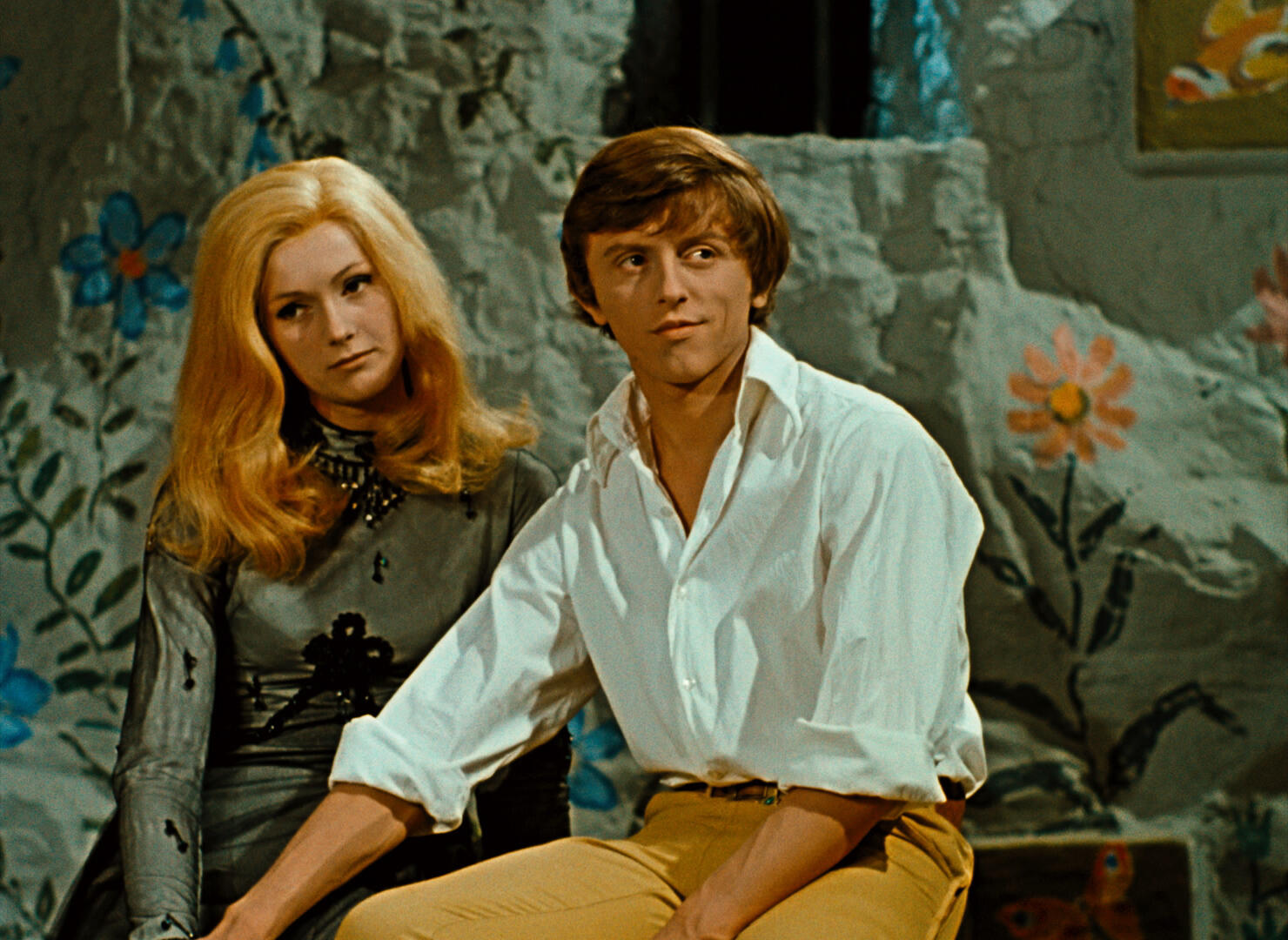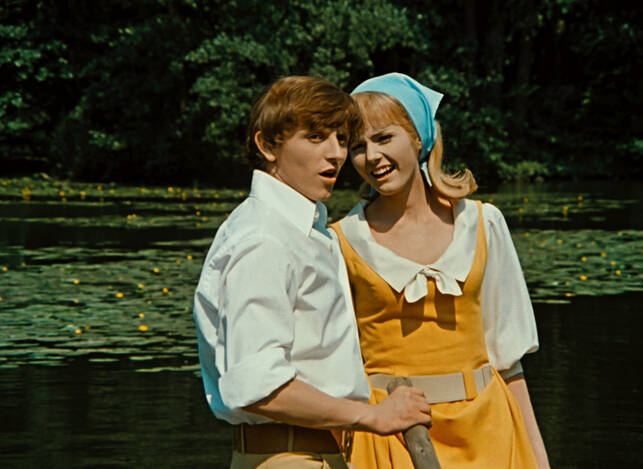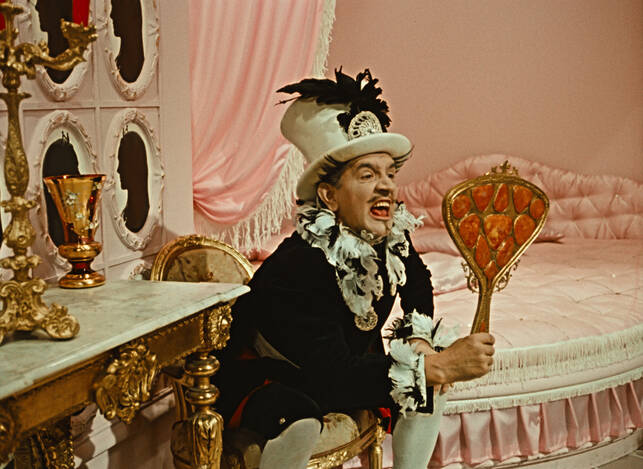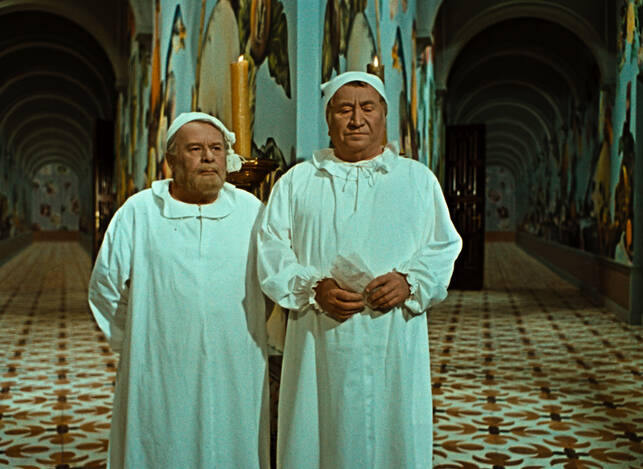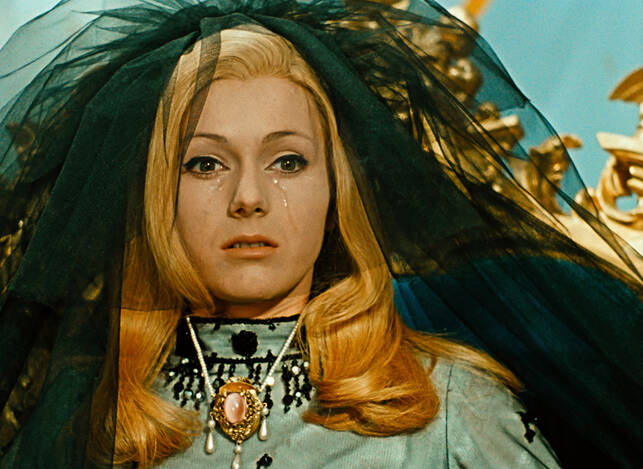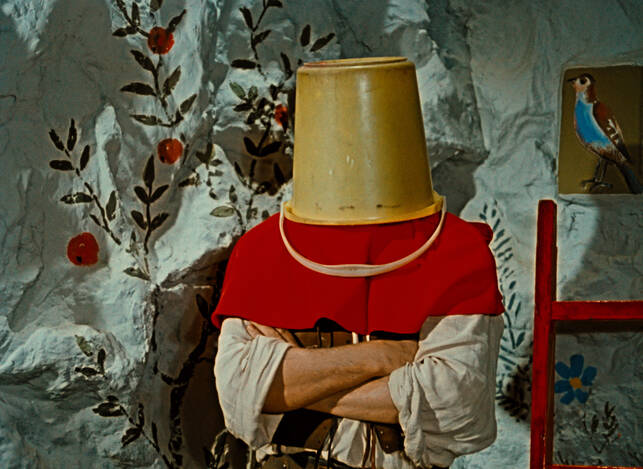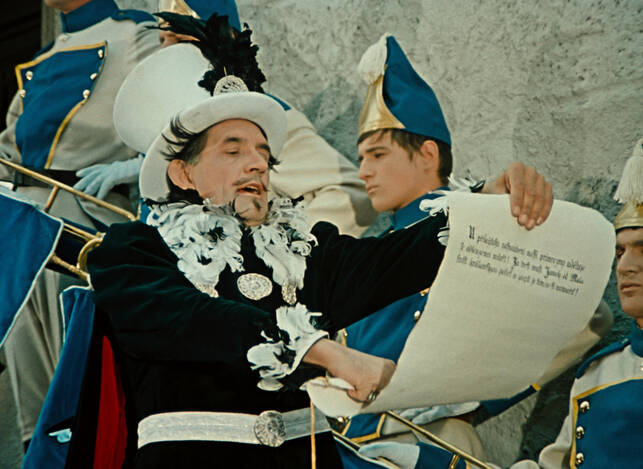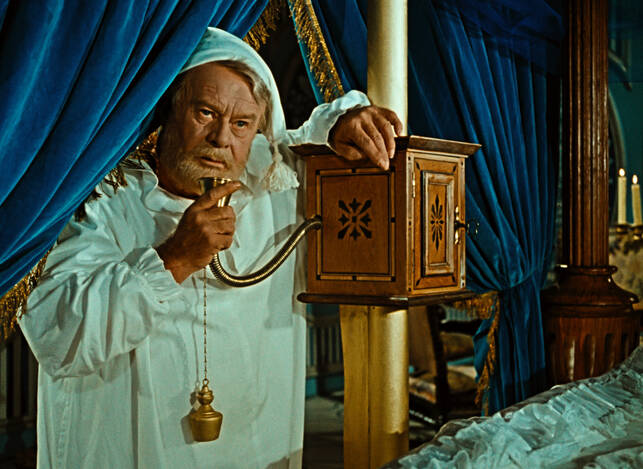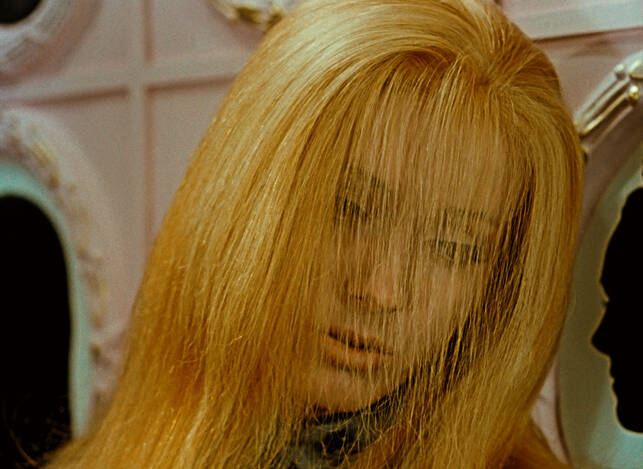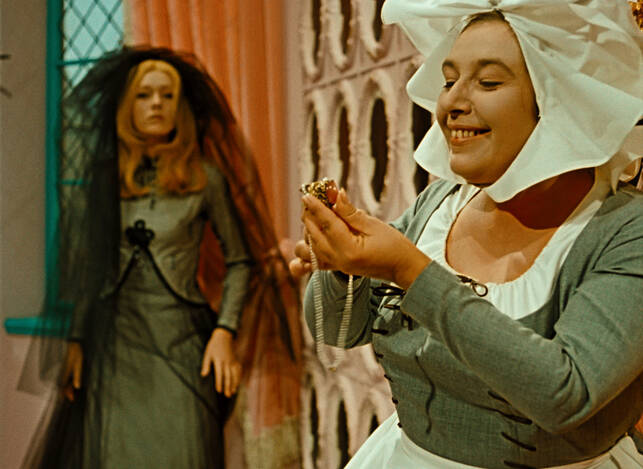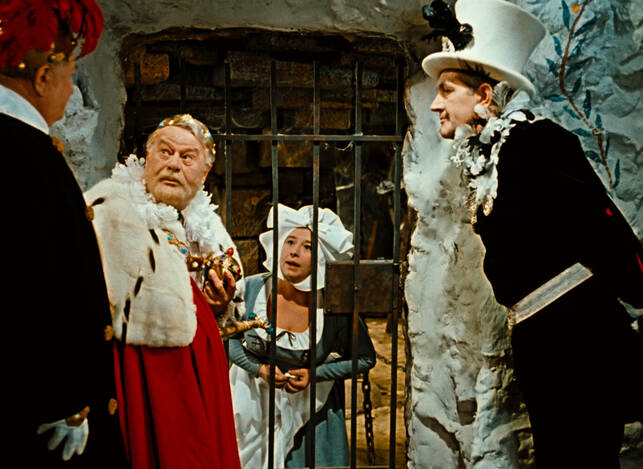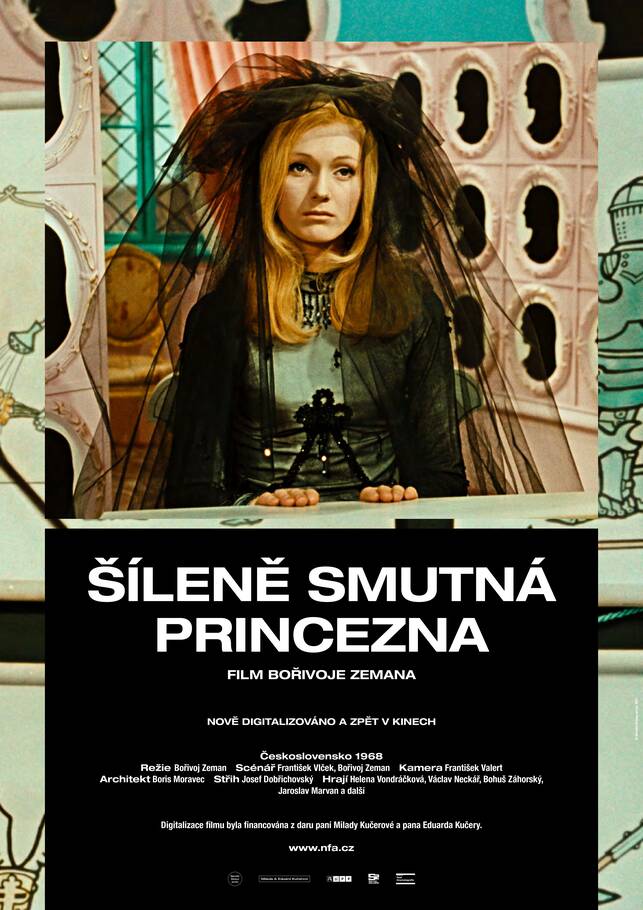Summary
Director Bořivoj Zeman gained a reputation as a timeless storyteller with films including Pyšná princezna (The Proud Princess, 1952) and Byl jednou jeden král… (Once Upon a Time, There Was a King..., 1954). This well-earned prestige was again consolidated in 1968, when Zeman co-wrote the screenplay for Šíleně smutná princezna (The Incredibly Sad Princess, 1968) with František Vlčka. The pair had already worked together on the comedy set in a trade union convalescence centre, Anděl na horách (Angel in the Mountains, 1955), and also on the exuberant parody Fantom Morrisvillu (The Phantom of Morrisville, 1966). Zeman’s timeless versatility also shines in this fairytale, which very much reflects the growing sense of freedom felt by Czechs during the Prague Spring (the film premiered in June 1968). The moods of the time are reflected in a similar manner to several of the author’s 1950s fairytales, which served as a quintessential example of the Stalinist-era cinematography of Czechoslovakia. In 1968, the then 56-year-old director utilised the popularity of two contemporary pop stars – Helena Vondráčková and Václav Neckář – who play an eternally squabbling but loving pair. Also of note is the fact that the two main characters share the same first names as the actors who portray them: Princess Helena and Prince Václav are the descendants of neighbouring royal families. Their fathers, Kings Dobromysl (Bohuš Záhorský) and Jindřich (Jaroslav Marvan), merged the royal houses through marriage some years ago. The discordant youngsters, who barely know each other, have no intention of sticking to this pre-arranged marriage. But in the end, they fall in love when they mutually conceal their identities from each other (similarly to Krasomila and Miroslav in 1952’s The Proud Princess). The stubborn Helena decides to force the issue of the marriage, deciding to play out the role of the sad princess in front of her father Dobromysl. The plan is that this loving father will give away his daughter to the “noble saviour” without knowing that he is the son of King Jindřich. But the advisors to both kings, Ypsilon and Iks respectively, cause trouble. Opposed to a marriage between the royal houses, they instead set the two families against each other in open conflict. But everything turns out fine in the end thanks to common sense and the help of a kind nanny. Graphic designer and illustrator Jiří Winter Neprakta provides the film with a modern aesthetic, as does music and song composer Jan Hammer Jr., then aged just twenty.
Read more

